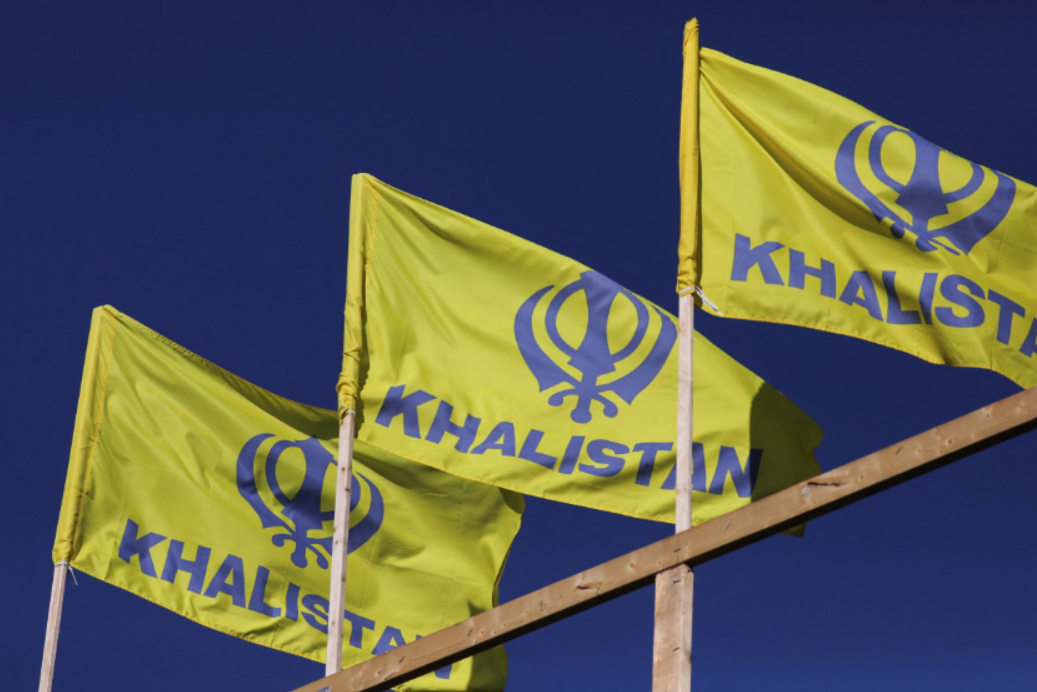
by Dr. Smit Gupta 30 November 2023
The recent revelation of a foiled assassination plot against Gurpatwant Singh Pannun, a prominent advocate for Khalistan, has injected a new layer of complexity into India’s diplomatic landscape. Pannun, heading Sikhs for Justice, an organization advocating for an independent Sikh state, found himself at the center of controversy when the United States intervened to thwart an alleged plan to assassinate him on American soil. This development raises significant questions about India’s international standing, particularly as it faces skepticism from its global partners.
The context surrounding the Pannun incident is crucial, especially in light of Canadian Prime Minister Justin Trudeau’s assertion of “credible allegations” linking Indian government agents to the killing of another Khalistan supporter, Hardeep Singh Nijjar, earlier this year. India promptly dismissed Trudeau’s claims, but subsequent events, including the US taking decisive action on its soil, paint a picture of India facing skepticism from its traditional allies.
What sets this situation apart is the response from the United States, a country that has been a strategic partner for India. The decision not only to halt potential moves by Indian operatives on US soil but also to issue a warning to New Delhi over the alleged plot underscores a growing divergence in interests or perceptions between the two nations. This has the potential to impact broader diplomatic engagements and collaborations. The lack of unequivocal support from Western countries in the aftermath of Nijjar’s killing and now, with the US taking a strong stance, reflects a shift in how India’s actions are perceived internationally.
The alleged assassination plot against Pannun, if proven true, contributes to the mounting skepticism about India’s handling of dissenting voices, particularly those advocating for Khalistan. Beyond the immediate diplomatic fallout, Pannun’s call for a global blockade against Air India introduces a new dimension to the controversy. Urging Sikhs not to travel on the airline due to potential threats to their lives amplifies the international activism surrounding the Khalistan cause.
Legal actions and targeted campaigns in foreign jurisdictions put India on the defensive and complicate its diplomatic maneuvering. These challenges come at a critical time for India, as it grapples with accusations of human rights abuses in various contexts, from farmers’ protests to dissent in regions like Kashmir. The Khalistan controversy adds another layer to the international scrutiny of India’s commitment to democratic values and the protection of minority rights.
As the US shares details of the alleged plot with a broader group of allies, it becomes evident that India is not only facing challenges from individual nations but also from collaborative intelligence-sharing platforms. The Five Eyes alliance, comprising the US, the United Kingdom, Australia, New Zealand, and Canada, has become a forum for discussing potential Indian involvement in incidents like Nijjar’s killing and the alleged plot against Pannun.
In conclusion, the Khalistan controversy is a wake-up call for India to reassess its diplomatic approach and prioritize transparent engagement on issues that attract international attention. The reluctance of key partners to offer unequivocal support raises concerns about India’s global image and its ability to navigate complex diplomatic challenges. As India seeks to rebuild trust on the international stage, it must demonstrate a commitment to democratic values, inclusivity, and open dialogue to address evolving global perceptions.
With every passing development, it becomes imperative for India to acknowledge that the world is watching, and its actions are under intense scrutiny. The Khalistan controversy is not merely an isolated incident but part of a broader narrative shaping perceptions of India’s respect for human rights, freedom of expression, and its treatment of dissenting voices. The reluctance of the Indian government to address these concerns directly further complicates matters.
The fallout from the Khalistan controversy has the potential to erode the diplomatic capital India has built over the years. The global stage demands a nuanced understanding of complex issues, and India must navigate these waters with finesse. Every action resonates globally, influencing not just diplomatic relations but also economic ties, strategic partnerships, and the overall perception of the nation. As India assesses the damage caused by the Khalistan controversy, it must also use this as an opportunity for introspection and course correction. The days of traditional diplomacy, characterized by closed-door discussions and limited public engagement, are evolving. Social media and instant information dissemination have ensured that public opinion is a potent force in shaping international narratives.
In this context, India’s ability to communicate its stance, address concerns transparently, and showcase a commitment to democratic values will be pivotal. This isn’t just about managing the fallout from one incident; it’s about laying the groundwork for a more resilient and adaptable diplomatic strategy in the face of future challenges. The Khalistan controversy, while challenging, can serve as a catalyst for India to redefine its narrative on the global stage. It’s an opportunity to showcase the strength of its democratic institutions, commitment to human rights, and an unwavering dedication to dialogue and diplomacy. As India navigates the complexities of the international stage, the lessons learned from the Khalistan controversy should become the foundation for a more proactive, transparent, and inclusive approach. The world is watching, and India’s response to this challenge will undoubtedly shape perceptions for years to come.
